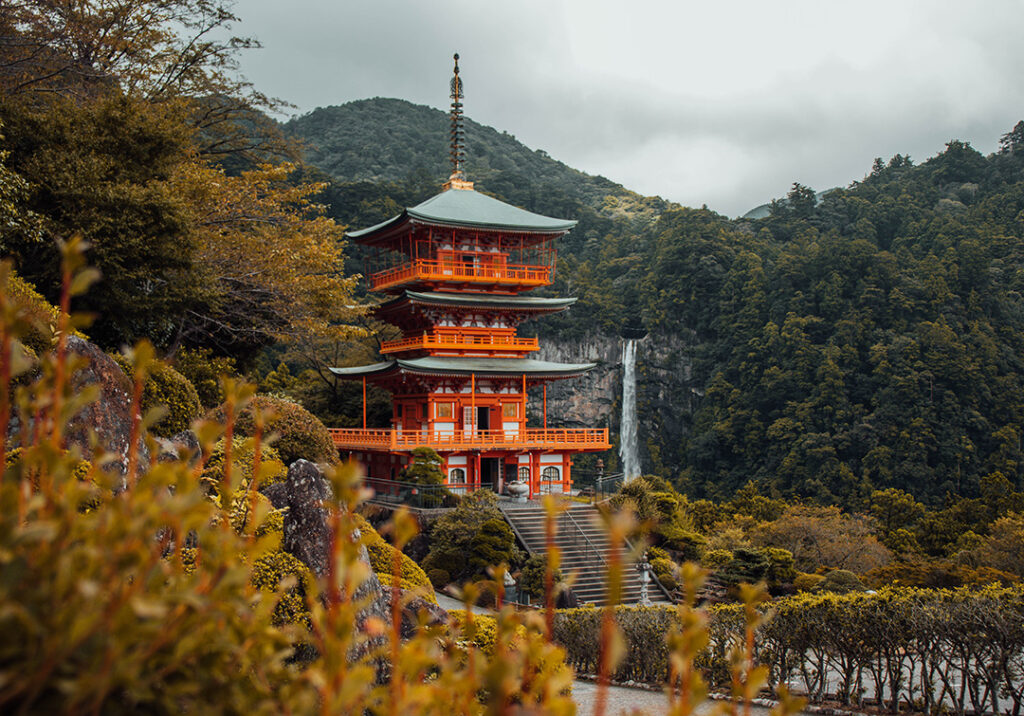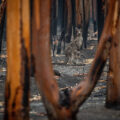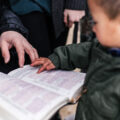Ecospirituality: Spiritualising ecology and greening faith
Ecospirituality: Spiritualising ecology and greening faith
Ecospirituality weaves ecology and spirituality, tackling the idea that the ecological crisis is mainly a values crisis tied to our spiritual essence.
In Western culture, the idea of a spiritual relationship with nature intensified from the second half of the 20th century. However, the links between ecology and spirituality have been addressed in all periods, from mediaeval thought to European romanticism or American nature writing. As early as 1845, Henry David Thoreau, the author of Walden,[1] said: “Heaven is under our feet as well as over our heads.”
Green spirit: 20th-century ecology and counterculture
From the mid-20th century onward, the counterculture movement endeavoured to revive a harmonious bond with nature, incorporating insights from Taoism, aboriginal cultures, Wicca, and pagan traditions into the Western worldview.
This movement also advocated for a redefined space for spirituality, sacredness, and divinity, challenging the perceived constraints of moral doctrines imposed by the Church. In contrast to the environmental impact of the American Way of Life, the counterculture also cultivated a growing ecological awareness.
Starting in the late 1950s, influential figures of the Beat Generation such as Jack Kerouac, Allen Ginsberg, and Gary Snyder, began extolling the virtues of open spaces and nature in opposition to suburban living. By 1967, numerous hippie communes had emerged in rural areas of the United States, and their numbers surged significantly by the decade’s end.[2]
With the rise of the New Age movement in 1970, a realm of ‘ecological-religious mysticism’ also unfolded.[3] Concurrently, within academic circles from the 1970s, a contemplation of environmental ethics evolved, centred on the concept of intrinsic value attributed to both individual natural entities and nature as a cohesive whole.
The Church’s role in environmental ethics
A pivotal moment arrived with Lynn White Jr.’s 1967 article in Science magazine, asserting that the ideological origins of the ecological crisis trace back to the Judeo-Christian concept of ‘anthropocentrism’.[4] As a response, numerous Christian churches initiated efforts towards the conservation and protection of nature. These initiatives, for instance, culminated in the publication of Laudato Si’ and the more recent Laudate Deum.[5] [6]
At the end of the 20th century, numerous academics began to be interested in these phenomena of spiritualisation of ecology and greening of religion, inaugurating currents of study that today are known as ecotheology, spiritual ecology, and ecospirituality. Their ultimate goal is to recognise the relevance of different religions and spiritualities to confront, constructively, the ecological crisis.[7]
What we mean when we talk about ecospirituality
Auréline Choné is recognised for being among the pioneers in popularising the term ecospirituality. According to her, ecospirituality is a multifaceted concept encompassing a wide range of discourse. Its primary challenge lies in consistently demonstrating that the ecological crisis is fundamentally a crisis of values, rooted in spiritual essence. Consequently, the proposed response must extend beyond the technical and material realm, emphasising a spiritual dimension in the broader sense—an ‘inner ecology’.[8]
Michel Maxime Egger, a distinguished ecotheologist, stands out as another leading scholar in the realm of ecospirituality in Europe. His significant contributions have played a crucial role in shaping this perspective. According to Egger, the ecological crisis extends beyond environmental concerns; it is also an internal crisis that influences our connections with ourselves, others, and the divine.
His Inner Transition Laboratory[9] represents one of the emerging entities in the Francophone region, fostering dialogue among diverse spiritual traditions in pursuit of understanding, ecological awareness, and engagement with today’s primary socioeconomic challenges.
In the evolving tapestry of Western culture, the fusion of ecology and spirituality persists as a vital thread. From countercultural movements to modern ecospirituality, the recognition of nature’s sacred connection underscores our collective journey toward a more harmonious existence. As we navigate this intersection, diverse perspectives offer valuable insights, shaping our holistic response to the urgent ecological challenges of our time.
Learn more about religion and society on the EARS Dashboard
Sources
[2] What Happened To America’s Communes?
[3] Millennials and the New Age – religion or not?
[4] The Historical Roots of Our Ecologic Crisis
[5] Heeding the call of Laudate Deum: Pope Francis’ climate wake-up






